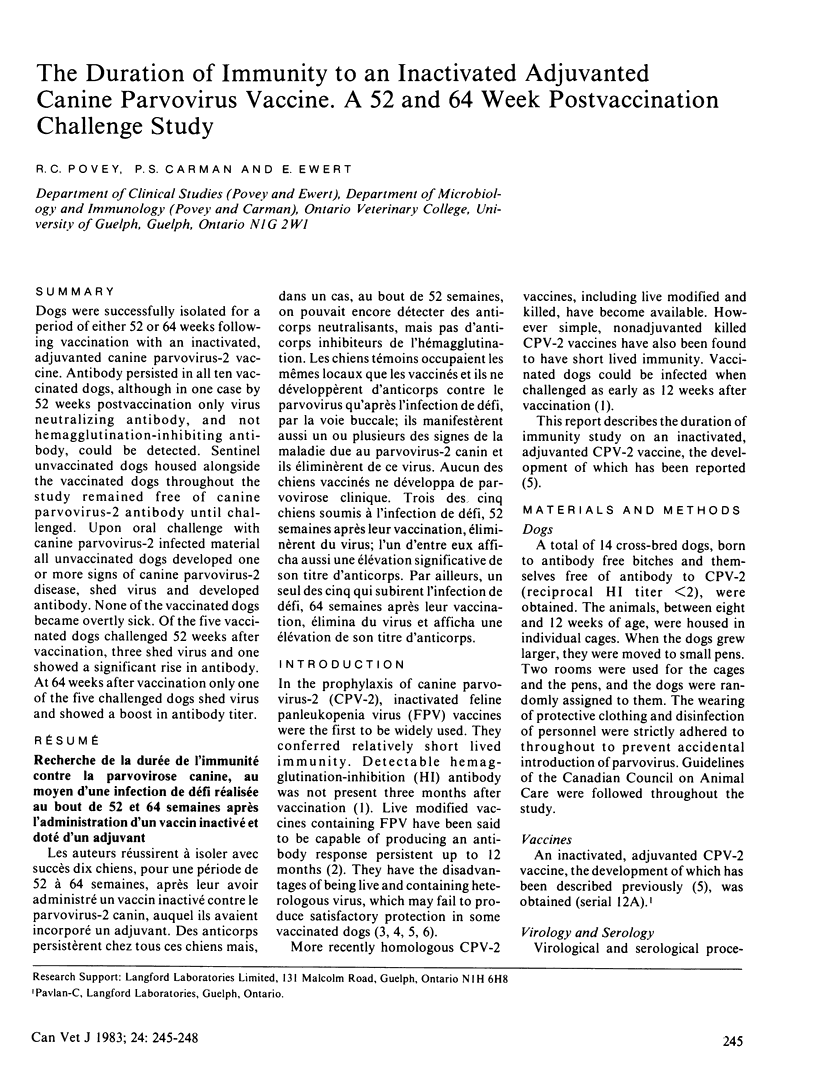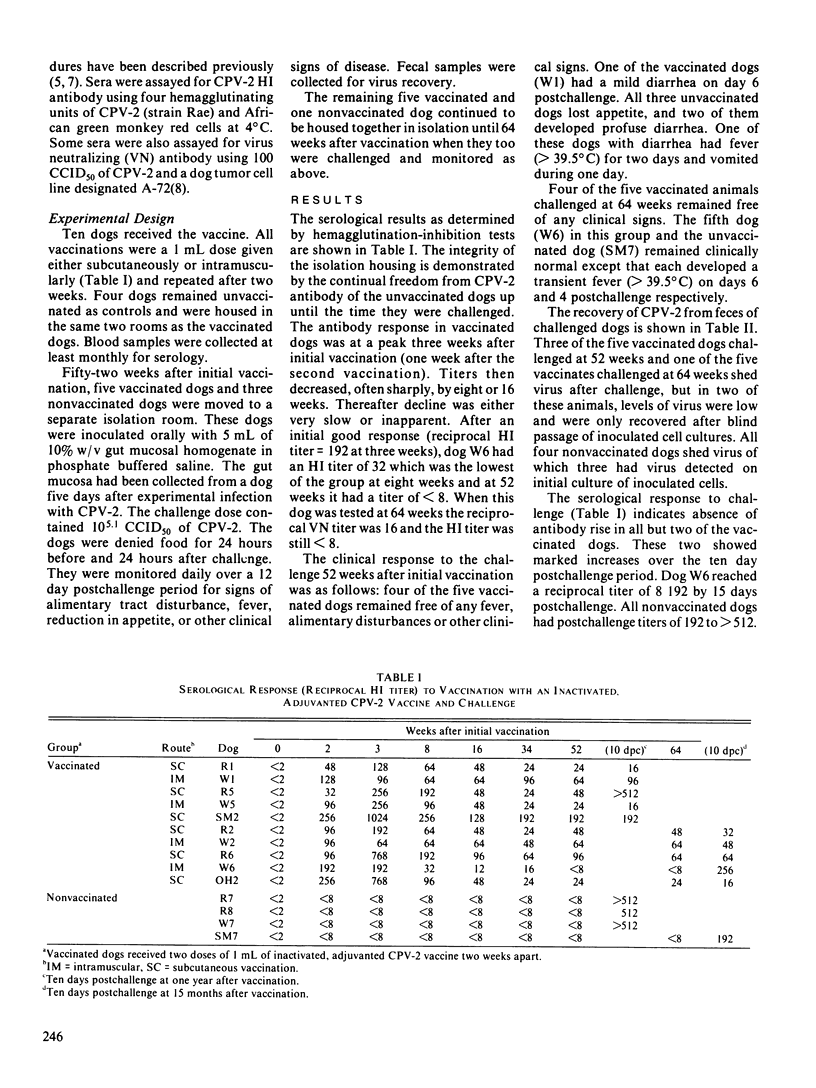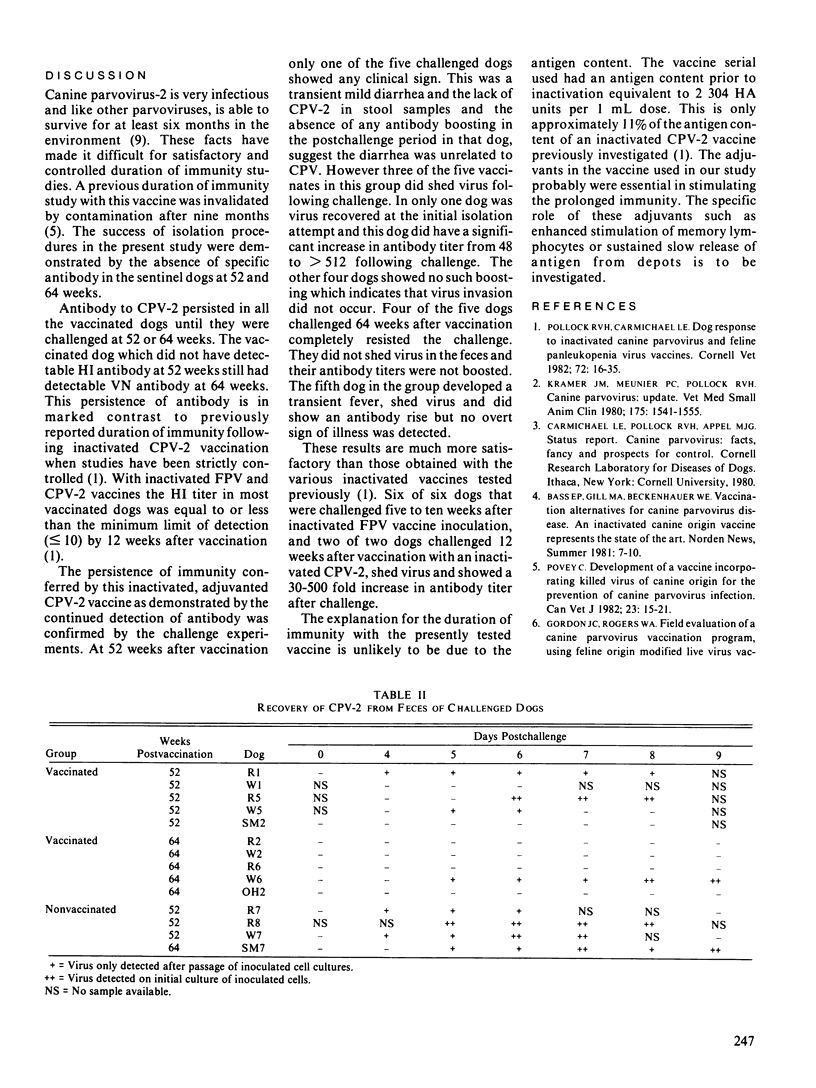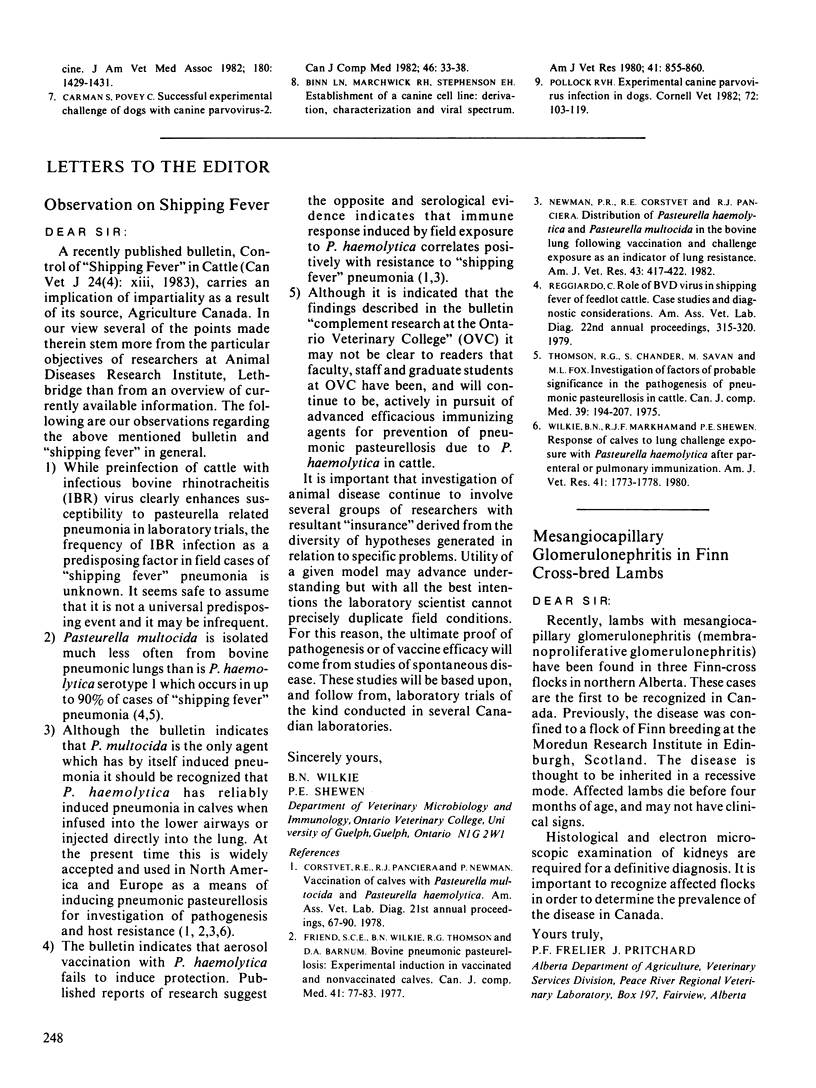Abstract
Dogs were successfully isolated for a period of either 52 or 64 weeks following vaccination with an inactivated, adjuvanted canine parvovirus-2 vaccine. Antibody persisted in all ten vaccinated dogs, although in one case by 52 weeks postvaccination only virus neutralizing antibody, and not hemagglutination-inhibiting antibody, could be detected. Sentinel unvaccinated dogs housed alongside the vaccinated dogs throughout the study remained free of canine parvovirus-2 antibody until challenged. Upon oral challenge with canine parvovirus-2 infected material all unvaccinated dogs developed one or more signs of canine parvovirus-2 disease, shed virus and developed antibody. None of the vaccinated dogs became overtly sick. Of the five vaccinated dogs challenged 52 weeks after vaccination, three shed virus and one showed a significant rise in antibody. At 64 weeks after vaccination only one of the five challenged dogs shed virus and showed a boost in antibody titer.
Full text
PDF



Selected References
These references are in PubMed. This may not be the complete list of references from this article.
- Binn L. N., Marchwicki R. H., Stephenson E. H. Establishment of a canine cell line: derivation, characterization, and viral spectrum. Am J Vet Res. 1980 Jun;41(6):855–860. [PubMed] [Google Scholar]
- Carman S., Povey C. Successful experimental challenge of dogs with canine parvovirus-2. Can J Comp Med. 1982 Jan;46(1):33–38. [PMC free article] [PubMed] [Google Scholar]
- Kramer J. M., Meunier P. C., Pollock R. V. Canine parvovirus: update. Vet Med Small Anim Clin. 1980 Oct;75(10):1541–1555. [PubMed] [Google Scholar]
- Pollock R. V., Carmichael L. E. Dog response to inactivated canine parvovirus and feline panleukopenia virus vaccines. Cornell Vet. 1982 Jan;72(1):16–35. [PubMed] [Google Scholar]
- Pollock R. V. Experimental canine parvovirus infection in dogs. Cornell Vet. 1982 Apr;72(2):103–119. [PubMed] [Google Scholar]
- Povey C. Development of a vaccine incorporating killed virus of canine origin for the prevention of canine parvovirus infection. Can Vet J. 1982 Jan;23(1):15–21. [PMC free article] [PubMed] [Google Scholar]


